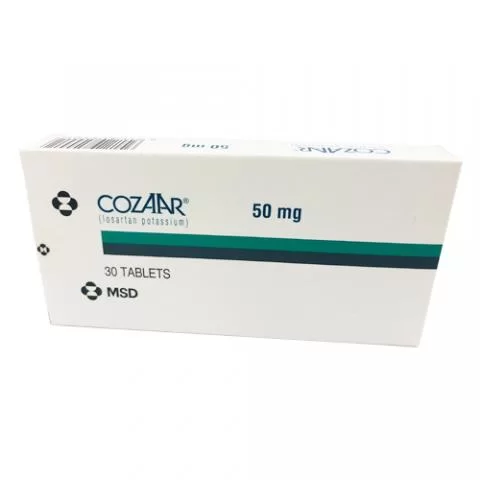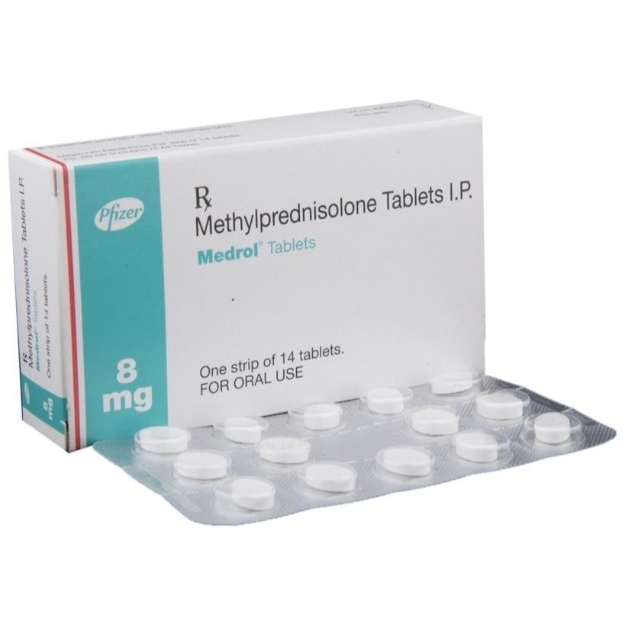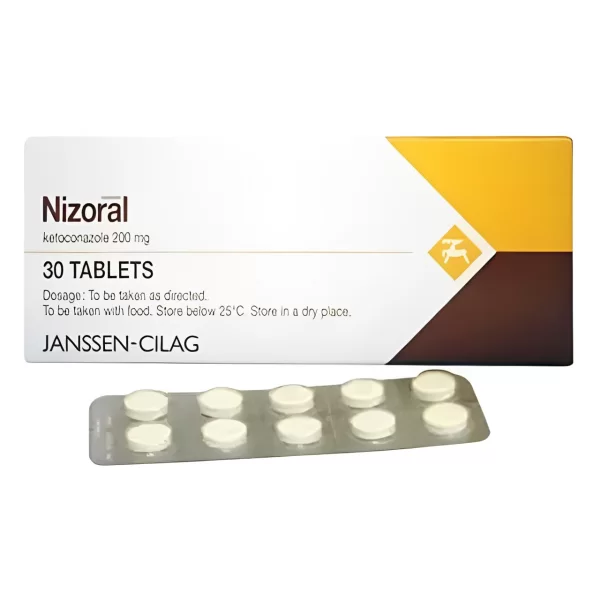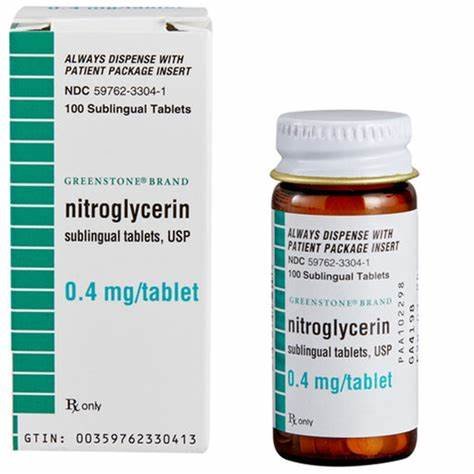
Cozaar
Cozaar - 50mg
| Product | Per Pill | Savings | Per Pack | Order |
|---|---|---|---|---|
| 28 pills | $1.50 | $42.00 | Buy Now | |
| 56 pills | $1.17 | $18.72 | $84.00 $65.28 | Buy Now |
| 112 pills | $1.00 | $56.16 | $168.00 $111.84 | Buy Now |
| 224 pills | $0.92 | $131.04 | $336.00 $204.96 | Buy Now |
Cozaar - 25mg
| Product | Per Pill | Savings | Per Pack | Order |
|---|---|---|---|---|
| 30 pills | $1.30 | $38.99 | Buy Now | |
| 60 pills | $1.02 | $16.59 | $77.98 $61.39 | Buy Now |
| 90 pills | $0.93 | $33.17 | $116.96 $83.79 | Buy Now |
| 120 pills | $0.88 | $49.76 | $155.95 $106.19 | Buy Now |
| 180 pills | $0.84 | $82.94 | $233.93 $150.99 | Buy Now |
| 270 pills | $0.81 | $132.70 | $350.89 $218.19 | Buy Now |
| 360 pills | $0.79 | $182.46 | $467.85 $285.39 | Buy Now |
Overview of Cozaar
General Introduction
Cozaar, also known by its generic name losartan, is an angiotensin II receptor blocker (ARB) used to treat high blood pressure (hypertension) and to help protect the kidneys from damage due to diabetes. It is also used to reduce the risk of stroke in certain people with heart disease. By blocking the action of angiotensin II, a substance in the body that causes blood vessels to tighten, Cozaar relaxes blood vessels, which lowers blood pressure and improves blood flow.
Key Benefits and Unique Properties of Cozaar
Key Benefits
Cozaar offers several key benefits for patients with hypertension and related conditions:
- Blood Pressure Control: Effectively lowers high blood pressure, reducing the risk of cardiovascular events such as heart attacks and strokes
- Kidney Protection: Helps protect the kidneys from damage in patients with type 2 diabetes and proteinuria
- Stroke Prevention: Reduces the risk of stroke in patients with high blood pressure and left ventricular hypertrophy
- Well-Tolerated: Generally well-tolerated with a lower incidence of cough compared to ACE inhibitors
Unique Properties
Cozaar is distinguished by its ability to block the effects of angiotensin II selectively, without inhibiting the breakdown of bradykinin, which often leads to a persistent cough in patients taking ACE inhibitors. This selective action results in effective blood pressure reduction with fewer side effects. Additionally, Cozaar has been shown to have beneficial effects on the kidneys, particularly in diabetic patients.
Comparison with Similar Medications
Comparison with Similar Medications
Compared to other ARBs and antihypertensive medications, Cozaar offers unique advantages:
- Selective Angiotensin II Blockade: Specifically blocks the angiotensin II receptor, avoiding some side effects associated with ACE inhibitors
- Kidney Protection: Proven to protect the kidneys in diabetic patients with proteinuria
- Lower Incidence of Side Effects: Less likely to cause a persistent cough compared to ACE inhibitors
Safety and Tolerability of Cozaar
General Information on Safety and Tolerability
Cozaar is generally well-tolerated. Common side effects include dizziness, nasal congestion, and back pain. Serious side effects are rare but may include allergic reactions, kidney problems, and hyperkalemia (high potassium levels). Regular monitoring by a healthcare provider is recommended to ensure safety and efficacy.
Indications for Use of Cozaar
Diseases and Conditions Treated
Cozaar is prescribed for the treatment of:
- Hypertension (High Blood Pressure): To lower blood pressure and reduce the risk of cardiovascular events
- Diabetic Nephropathy: To protect the kidneys in patients with type 2 diabetes and proteinuria
- Stroke Risk Reduction: To reduce the risk of stroke in patients with hypertension and left ventricular hypertrophy
Symptoms Indicating Use
Patients experiencing symptoms of high blood pressure, such as headaches, shortness of breath, and nosebleeds, may benefit from Cozaar. It is also indicated for diabetic patients with proteinuria and for those at increased risk of stroke due to heart conditions.
Dosage and Administration of Cozaar
Recommended Dosage for Adults
For adults with hypertension, the usual starting dose of Cozaar is 50 mg once daily. The dose may be increased to 100 mg once daily based on the patient's response and blood pressure goals. For nephropathy in type 2 diabetic patients, the recommended dose is 50 mg once daily, increased to 100 mg once daily if needed.
Dosage for Children
The recommended dose for children aged 6 and older with hypertension is 0.7 mg/kg once daily (up to a maximum of 50 mg daily). Dose adjustments should be based on the response and tolerability of the patient, with close monitoring by a healthcare provider.
Dosage for Elderly Patients
Elderly patients can use Cozaar at the same dosage as younger adults, but they should be monitored closely for renal function and blood pressure response. Dose adjustments may be necessary based on overall health and concurrent medical conditions.
Optimal Timing of Administration
Cozaar can be taken with or without food. It is usually taken once daily, preferably at the same time each day to maintain consistent blood levels and optimize blood pressure control.
Frequency of Administration
Cozaar is typically administered once daily. Consistent daily administration is crucial for maintaining therapeutic blood levels and achieving optimal blood pressure control.
Impact of Food on Efficacy
Food does not significantly affect the absorption of Cozaar, allowing for flexibility in administration with or without meals.
Pharmacological Action of Cozaar
Mechanism of Action
Losartan, the active ingredient in Cozaar, works by blocking the binding of angiotensin II to the AT1 receptor in various tissues. This inhibition prevents angiotensin II from exerting its vasoconstrictive and aldosterone-secreting effects, leading to vasodilation, decreased blood pressure, and reduced workload on the heart.
Molecular and Cellular Targets
Losartan selectively targets the AT1 receptors for angiotensin II, which are found in vascular smooth muscle, adrenal gland, kidneys, and other tissues. Blocking these receptors prevents the harmful effects of angiotensin II on blood pressure and fluid balance.
Metabolic Pathways
Losartan is metabolized in the liver by the cytochrome P450 enzyme system, particularly CYP2C9 and CYP3A4, to its active metabolite, EXP3174, which is even more potent in blocking the AT1 receptor. Both losartan and its metabolite are excreted in the urine and feces.
Biochemical Changes
Blocking the AT1 receptor by losartan results in decreased vasoconstriction, reduced aldosterone secretion, lower blood pressure, and decreased sodium and water retention. These biochemical changes help manage hypertension and protect the cardiovascular system.
Physiological Effects
Cozaar effectively lowers blood pressure, reduces proteinuria in diabetic patients, and decreases the risk of stroke. By improving blood flow and reducing the workload on the heart, Cozaar helps prevent complications associated with high blood pressure and kidney damage.
Composition of Cozaar
Active Ingredient
The active ingredient in Cozaar is losartan potassium. It is available in tablet forms of 25 mg, 50 mg, and 100 mg strengths.
Inactive Ingredients
Cozaar tablets contain inactive ingredients such as microcrystalline cellulose, lactose monohydrate, cornstarch, and magnesium stearate. These ingredients aid in the formulation, stability, and absorption of the active ingredient.
Role of Each Component
- Losartan potassium: Blocks the action of angiotensin II on the AT1 receptor, leading to vasodilation and lower blood pressure.
- Microcrystalline cellulose: Acts as a filler and provides bulk to the tablet.
- Lactose monohydrate: Serves as a filler and stabilizer.
- Cornstarch: Used as a disintegrant to help the tablet dissolve properly.
- Magnesium stearate: Functions as a lubricant to prevent the ingredients from sticking to the manufacturing equipment.
Side Effects of Cozaar
Common Side Effects
Common side effects of Cozaar include dizziness, nasal congestion, back pain, and fatigue. These side effects are usually mild and resolve with continued use of the medication.
Rare Side Effects
Rare side effects may include severe allergic reactions, kidney problems, and hyperkalemia (high potassium levels). Patients should seek medical attention if they experience symptoms such as swelling, difficulty breathing, or muscle weakness.
Serious Side Effects
Serious side effects requiring immediate medical attention include severe allergic reactions (anaphylaxis), signs of kidney failure (reduced urine output, swelling, rapid weight gain), and hyperkalemia (irregular heartbeat, muscle weakness).
Frequency and Severity
Most side effects are mild and occur early in the treatment. Serious side effects are rare but warrant close monitoring by a healthcare provider. Regular follow-up appointments can help manage and mitigate these risks, ensuring safe and effective use of Cozaar.
Prevention of Side Effects
General Precautions
To minimize side effects, patients should follow the prescribed dosage and avoid using potassium supplements or salt substitutes containing potassium without consulting their healthcare provider. Regular monitoring of kidney function and potassium levels is recommended.
Recommendations for Better Tolerability
Using Cozaar as directed and maintaining regular follow-up appointments with a healthcare provider can improve tolerability. Patients should be educated on the importance of adhering to the prescribed treatment regimen and monitoring their response to the medication.
Contraindications for Cozaar
Conditions and Diseases
Cozaar is contraindicated in patients with known hypersensitivity to losartan or any of its components. It should not be used during pregnancy, particularly in the second and third trimesters, due to the risk of fetal harm. Caution is advised in patients with severe renal impairment and those with a history of angioedema related to previous ARB or ACE inhibitor use.
Explanation of Contraindications
Losartan may cause harm to the fetus if taken during pregnancy, particularly in the later stages, by affecting the renal function of the developing fetus. Hypersensitivity reactions can lead to severe allergic responses, making it crucial to assess a patient's medical history and allergies before prescribing Cozaar.
Warnings and Precautions for Cozaar
Potential Risks
Patients should be monitored for signs of kidney dysfunction and hyperkalemia, especially those with pre-existing kidney conditions. Regular blood tests may be required to monitor kidney function and electrolyte levels.
Safety Measures
Regular monitoring by a healthcare provider, starting with a low dose, and adjusting as needed can help mitigate risks. Patients should be instructed to report any symptoms of kidney problems or hyperkalemia, such as muscle weakness or irregular heartbeat.
Missed Dose
Immediate Actions
If a dose is missed, take it as soon as remembered unless it is almost time for the next dose. Do not double the dose to catch up. Continue with the regular dosing schedule.
Preventive Strategies
Using reminders and keeping a consistent schedule can help prevent missed doses. Patients can set alarms, use medication reminder apps, or keep a medication diary to track their doses.
Drug Interactions
Interacting Medications
Cozaar may interact with other medications, including NSAIDs, diuretics, and potassium supplements. These interactions can either reduce the efficacy of Cozaar or increase the risk of adverse effects. It is essential to inform the healthcare provider of all medications being taken to avoid potential interactions.
Effects of Interactions
These interactions can affect the metabolism and efficacy of Cozaar or the concomitant medications. For instance, NSAIDs may reduce the antihypertensive effects of losartan, while potassium-sparing diuretics can increase the risk of hyperkalemia. Monitoring blood levels and adjusting dosages may be necessary to manage these interactions.
Avoiding Interactions
Inform the healthcare provider of all medications being taken to avoid potential interactions. Patients should not start, stop, or change the dosage of any medicines without their healthcare provider’s approval. Regular reviews of medication regimens can help identify and manage potential interactions.
Overdose
Symptoms of Overdose
Symptoms of overdose may include severe dizziness, fainting, and rapid or slow heart rate. Seek emergency medical help if an overdose is suspected. Supportive measures and symptomatic treatment are recommended.
Immediate Actions
Seek emergency medical help if an overdose is suspected. Supportive measures and symptomatic treatment are recommended. Activated charcoal may be administered if the overdose is recent, and intravenous fluids may be given to maintain blood pressure.
Pharmacokinetics
Absorption
Losartan is rapidly absorbed after oral administration, with peak plasma concentrations reached within 1 to 2 hours. The bioavailability of losartan is approximately 33%, and food does not significantly affect its absorption.
Distribution
Losartan is extensively distributed throughout the body, with a volume of distribution of approximately 34 liters. It is highly bound to plasma proteins, primarily albumin.
Metabolism
Losartan is metabolized in the liver to its active metabolite, EXP3174, which is more potent in blocking the AT1 receptor. Both losartan and its metabolite are excreted in the urine and feces.
Elimination
The half-life of losartan is approximately 2 hours, and that of its active metabolite is about 6 to 9 hours. Losartan and its metabolites are primarily excreted through the kidneys. Dose adjustments may be necessary for patients with renal impairment.
Dosage Forms
Available Forms and Dosages
Cozaar is available in tablet forms of 25 mg, 50 mg, and 100 mg strengths. These various dosages allow for flexible and tailored treatment approaches based on patient needs and tolerability.
Benefits of Different Forms
The availability of multiple dosage strengths makes it easier to adjust the dose for optimal blood pressure control and patient response. Tablets can be taken once daily, providing a convenient and effective treatment regimen.
Pregnancy and Breastfeeding
Safety During Pregnancy
Cozaar should not be used during pregnancy, especially in the second and third trimesters, due to the risk of fetal harm. Women of childbearing age should use effective contraception while taking Cozaar. If pregnancy is detected, the medication should be discontinued as soon as possible.
Safety During Breastfeeding
It is not known whether losartan is excreted in human milk. Due to the potential for adverse effects in nursing infants, a decision should be made whether to discontinue breastfeeding or discontinue the drug, considering the importance of the drug to the mother. Breastfeeding mothers should consult their healthcare provider to weigh the potential risks and benefits.
Storage Conditions
General Recommendations
Store Cozaar at room temperature between 20°C to 25°C (68°F to 77°F). Keep the medication in its original container, tightly closed, and out of reach of children and pets.
Specific Storage Instructions
Cozaar tablets should be stored in a cool, dry place away from direct sunlight and moisture. Do not store in the bathroom or other humid environments, as moisture can affect the stability of the tablets.
Expiry and Stability
Check the expiration date on the package and do not use Cozaar past the expiration date. Proper storage ensures the medication remains effective and safe to use. Dispose of expired or unused medication according to local regulations to prevent accidental exposure or misuse.
Clinical Trials and Efficacy
Overview of Clinical Studies
Cozaar has undergone extensive clinical trials to evaluate its safety and efficacy in treating hypertension and protecting the kidneys in diabetic patients. These studies included randomized, double-blind, placebo-controlled trials involving thousands of patients worldwide.
Results and Findings
Clinical trials have shown that Cozaar significantly lowers blood pressure and reduces proteinuria in diabetic patients, providing kidney protection. Patients treated with Cozaar demonstrated better outcomes in terms of blood pressure control and kidney function compared to those receiving a placebo.
Comparative Studies
Studies comparing Cozaar with other antihypertensive medications have shown that Cozaar provides effective blood pressure reduction with a favorable safety profile. Its selective action on the AT1 receptor results in fewer side effects, making it a preferred choice for many healthcare providers.
Conclusion
Summary of Key Points
Cozaar is an effective antihypertensive medication that also offers kidney protection in diabetic patients with proteinuria. Its selective action on the AT1 receptor provides effective blood pressure reduction with fewer side effects. The medication is generally well-tolerated, with a well-documented safety profile.
Recommendations
For optimal results, patients should follow their healthcare provider's instructions regarding dosage and administration. Regular monitoring and follow-up appointments are essential to ensure the medication's effectiveness and manage any side effects. Patients should maintain a healthy lifestyle, including a balanced diet and regular exercise, to support blood pressure control.
Final Thoughts
Cozaar significantly improves the quality of life for patients with hypertension and diabetic nephropathy by effectively managing blood pressure and protecting kidney function. With its proven efficacy and safety, Cozaar remains a trusted choice for healthcare providers and patients in the management of hypertension and related conditions.




